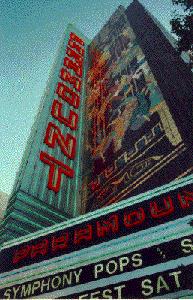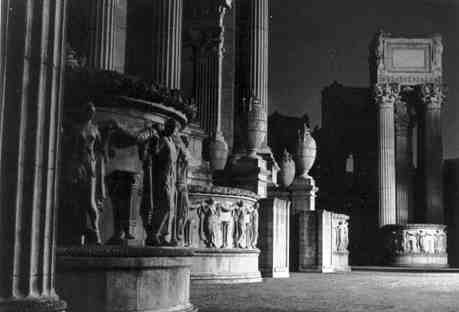 |
One of my earliest memories of politics is listening to the radio reporting the landslide results in favor of Proposition 13, the California initiative to drastically cut property taxes.
Though I didn't understand its value to my parents tax return, I remember being more concerned about the impact it would have on poor families in my hometown. I believed that California voters were just being greedy and were cruelly insensitive. If our taxes were meant to help others less fortunate in our own communities, then it was every taxpayer's duty pay their share.
As I entered college at Berkeley in the early 80's, the activism of the Free Speech Movement was less radical, but still strongly liberal. Struggling through my unassertiveness towards political causes, I soon affirmed my own progressive views and partic
ipated in several protests and campaigns. Racism, apartheid, Nicaraguan aid, military spending and the nuclear proliferation threat were all important issues to us, no matter how out of step we were with the rest of the country. It seemed obvious to us
that the years of Reagan's indifferent conservatism were obscuring real problems afflicting our society.
As I entered the work force, however, I found I became more interested in conservative viewpoints. The economic slowdown in the late 80's made me more aware of the importance of the free market. The impact of drugs and crime in the inner cities influenc
ed my strong views regarding law enforcement issues, including favoring the death penalty. I feel the current proposals for decreased regulation and giving more power to the states are important to eliminate duplication and government waste. Every time
I read the newspaper, it surprises me to see myself drawn more and more to Republican positions. The one belief I've held constant though, is not due to a policy debate, op-ed article or protest march. My belief in social justice and equality was shaped
by growing up in my hometown, Oakland, California.
|
 |
In comparison to the glamour of San Francisco and the activism of Berkeley, Oakland is considered nondescript, working class, lacking in charm and attraction. Yet, it is these qualities that are its strengths. The city is complex and diverse. It is oft
en confusing and unknowable for people who don't live there. Stereotypes about high murder rates and drug trade do unfortunately make the city seem less safe than before. However, most of the city is involved in the basics - working, living and taking c
are of their families.
Oakland's large minority population makes it easily associated with race problems afflicting other inner cities. However, the high level of integration in its neighborhoods make it a place to learn about difference, tolerance and human qualities beyond r
ace. It is a place where rich and poor and black and white and brown co-exist. It was this unique diversity that impressed on me the importance of community and the ties that bind us all together.
Hometowns give us an identity. They define our earliest memories of society and our relationships within it. While growing up, I had many friends of different cultures and races. Though different in view, we learned from each other and were open to new
situations and events. I feel this created in me the desire to serve my community. I did volunteer work for the city. I tutored in the schools. I became involved with planning and neighborhood development issues. It gave me a sense of self worth and
pride to say I was from Oakland, a connection I had with everyone else who lived there.
On a personal level, it is connections like these that create the feeling of shared responsibility for one another, be it a club, church, or pride in your own hometown. Whether through charity or government, it is for our own survival that we must unders
tand our fortune is tied to the fortunes of everyone else. The American creed has always stressed the importance of the individual. Yet I feel this must be balanced with the bonds of community.
My political views stress individuality and liberal philosophy, but I see the need for a greater social order. I feel it is important we have something to be connected to in order to express our own qualities. It is a fine line. In Bosnia, ethnic and g
roup factions resist efforts to bring them together. Is it possible to be a member of a group and respect another group's rights to exist? I think it is a matter of education. When one is inquisitive and open to learning about others, the stereotypes m
any rely on for information about others disappear. My experiences in Oakland introduced me to many cultures, where diversity was a matter of fact, rather than a goal or a hindrance.
I believe America is a mosaic, rather than a melting pot. Each individual piece has its own shape and form and color but exists as part of a greater whole. By fostering a sense of personal connection with a group, I think we can encourage common bonds,
trading experiences through mutual study. It is a more practical political philosophy rather than a concise theoretical one. But I think it is a more hopeful, optimistic philosophy that nurtures, rather than divides.
|